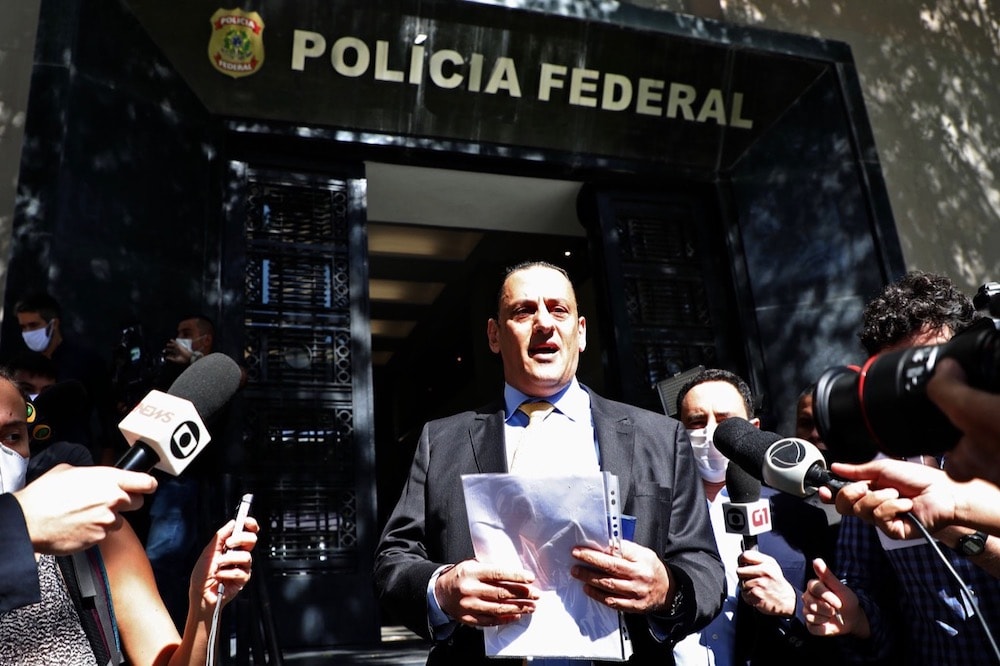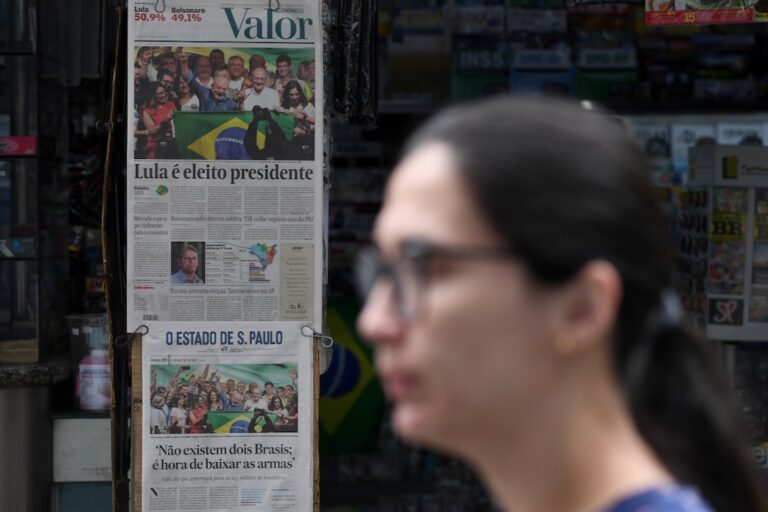CPJ condemned a recent civil court ruling against journalist Juliana Dal Piva, and expressed concern that the ruling could set a dangerous precedent.
This statement was originally published on cpj.org on 15 June 2022.
The Committee to Protect Journalists on Wednesday condemned a recent civil court ruling against journalist Juliana Dal Piva, and expressed concern that the ruling could set a dangerous precedent.
On June 9, São Paulo state Sixth Civil Court Judge Fabio Coimbra Junqueira ruled that Dal Piva’s 2021 publication of a threatening message sent to her by Frederick Wassef, President Jair Bolsonaro’s personal lawyer, was “unauthorized,” and ordered her to pay Wassef 10,000 reals (about US$2,000) in damages, according to news reports, a statement by the Brazilian Association of Investigative Journalism (Abraji), and a copy of the ruling, which CPJ reviewed.
In the same ruling, the court ordered Wassef to pay the same amount to Dal Piva, a journalist with the national online outlet UOL, for damages relating to the “negative repercussion” to her life caused by his allegations about her professional ethics and sexuality in that message.
The court also denied Dal Piva’s requests that Wassef publicly apologize and be prohibited from contacting her, according to those sources. Sheila Carvalho, a lawyer representing Dal Piva, told CPJ via messaging app that they planned to appeal the decision.
“We are very concerned by the recent Brazilian court ruling that ordered journalist Juliana Dal Piva to pay damages to President Bolsonaro’s personal lawyer Frederick Wassef for going public with a threatening message he sent her,” said CPJ’s Latin America and the Caribbean program coordinator, Natalie Southwick, in New York. “This decision sets a dangerous precedent for the Brazilian press, discouraging journalists from reporting threats and fueling the increasing online abuse against women journalists in Brazil.”
On July 9, 2021, Wassef sent a threatening text message to Dal Piva, as CPJ reported at the time. The threats followed Dal Piva’s reporting on alleged corruption involving Bolsonaro and his family members, for which she had interviewed Wassef. Dal Piva published Wassef’s message in her UOL column, which was republished by news outlets and press freedom groups.
The court ruled that “it is neither implicit nor explicit, at any moment” that the message threatened Dal Piva, and said that she should not have made the message public, as “communications between private parties are confidential.”
Carvalho told CPJ that the message endangered Dal Piva’s right to work freely, and said it was “very serious” that the judge had issued such a ruling.
“Publicizing the threat is a protective mechanism for the journalist who has been threatened,” Carvalho said.
In an email to CPJ, Junqueira said his ruling “does not change the way freedom of the press is treated in the country.”
Reached via messaging app, Wassef said the decision showed that there was “no threat” in his message to Dal Piva, and called himself a “victim” of “fake news.”



